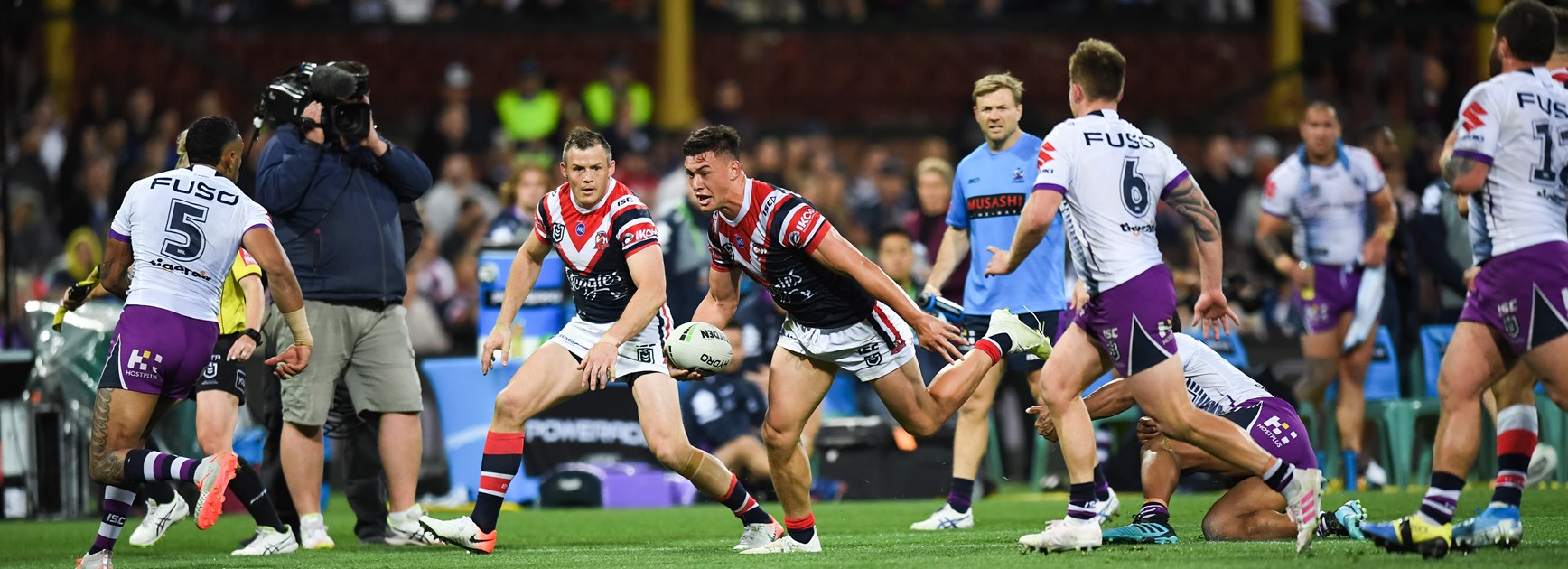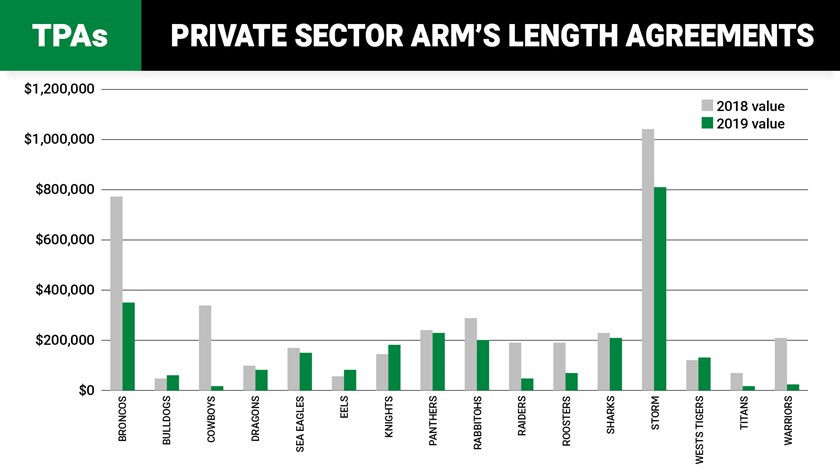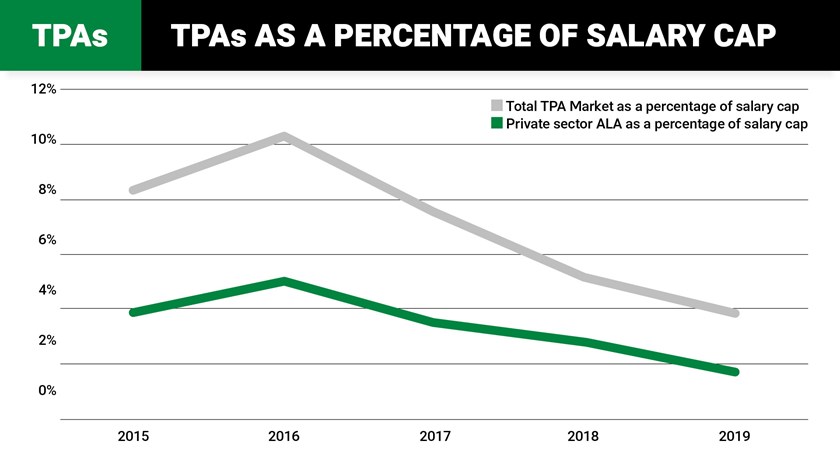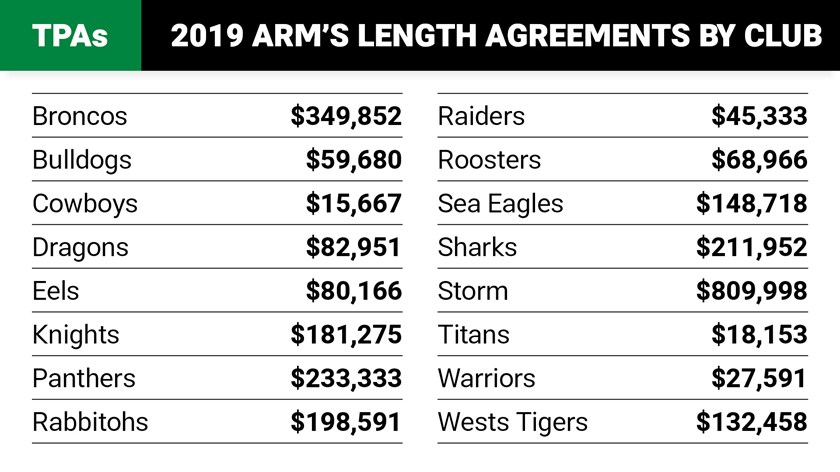
The NRL's crackdown on third-party agreements has led to a drop of almost $2 million over the past year in outside-the-cap payments, with premiers Sydney Roosters one of the lowest and Melbourne the highest.
In a bid to provide clarity around one of the game's taboo topics, the NRL last year decided to make third-party agreements public and followed through again on Friday to highlight the improvement in transparency and integrity of the code's contract process.
It is deemed to be a contributing factor that led to a reduction from $7.8 million of totals TPAs in 2018 to just $6m this year.
While there are a range of contributing factors, including the retirements of some of the game's superstars like Johnathan Thurston and Billy Slater, the NRL believes clubs are beginning to understand the repercussions of breaking the rules.
There are a range of different TPAs – which include motor vehicles, whole of game sponsorship and community and contra deals – however the private sector arm's length agreements are what have traditionally been most questioned by fans.

Of the $6m of TPAs in 2019, only $2.7m came from private sector arm's length agreements, significantly less than the $4.7m 12 months earlier.
The club with the highest amount of private sector TPAs in 2019 was once again the Melbourne Storm, however the retirement of Slater is understood to have contributed heavily to the drop from just over $1m last year to $810,000 this year.
The next highest clubs included the Broncos (down from $780,000 to $350,000), Panthers ($233,000), Sharks ($212,000) and Rabbitohs ($199,000).

The Roosters had just $69,000 worth of private sector TPAs, however the likes of Cooper Cronk and James Tedesco benefited from additional whole of game sponsorship which wasn't included in the team-by-team breakdown.
The team with the lowest amount of private sector TPAs was the Cowboys, dropping from the third most in 2018 with $350,000 to just $16,000 following the retirement of Thurston.
Other teams with a small amount of TPAs included the Titans ($18,000) and the Warriors ($28,000).
Twelve clubs experienced a decrease in private sector TPAs from 2018 to 2019, with only the Bulldogs, Eels, Knights and Tigers registering minimal growth.
"These figures show a significant decline in the amount of third-party agreements across the game," NRL chief operating officer Nick Weeks said.
"The reduction reflects the retirement of some of the game's elite players and the effectiveness of additional checks and balances we have put in place to identify noncompliance with the rules are working. We recognised the genuine concerns our clubs and fans had about third-party agreements.

"That's why we introduced more strenuous measures to ensure these arrangements are genuine arms-length deals. We are confident that this level of transparency about third-party agreements will improve confidence in the effective operation of the salary cap and reduce the amount of speculation and guess work about this part of the game."
The top five players who benefit from TPAs make up 48% of the total amount, with the number of players with agreements dropping from 94 to 81 in the past 12 months.
The number of total agreements has also dropped from 205 to 172.
In 2019, total TPA market was the equivalent of 3.9% of the total salary cap (10 per cent in 2016) and less than 2% for private sector arms-length agreements (five per cent in 2016).


